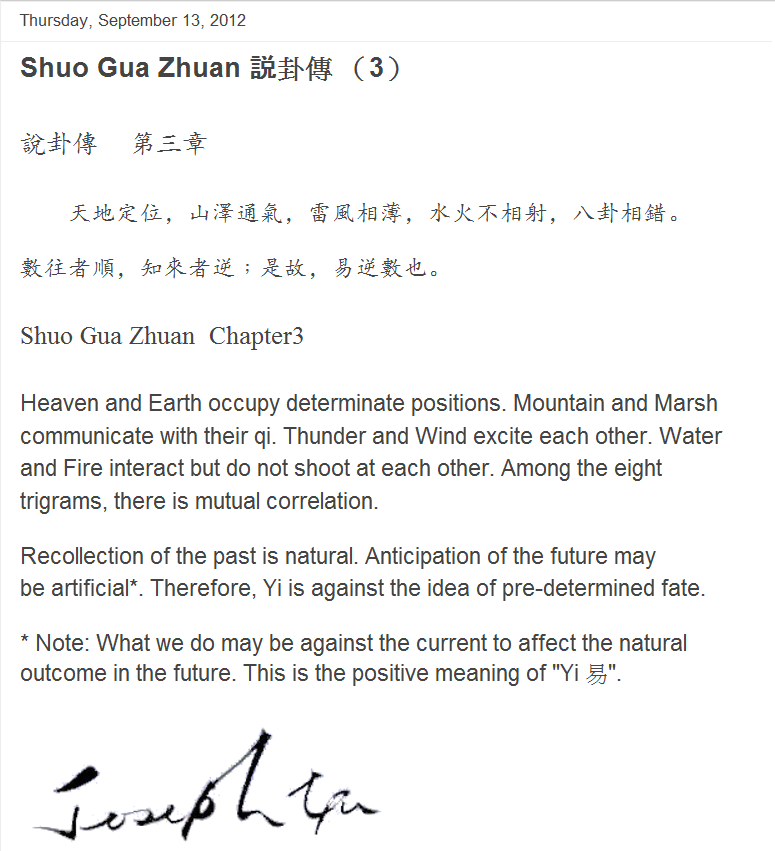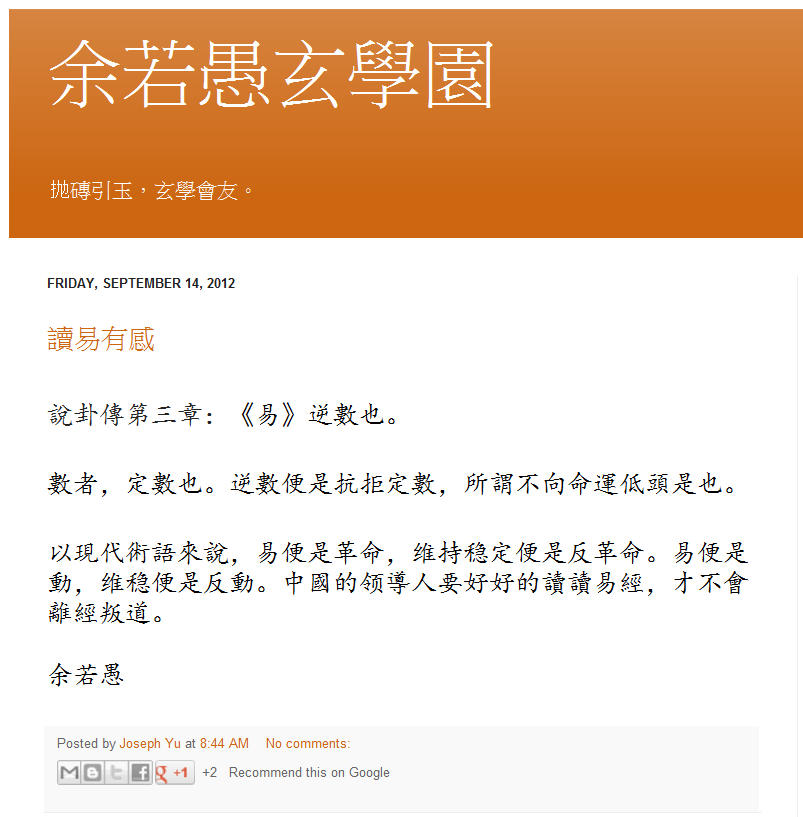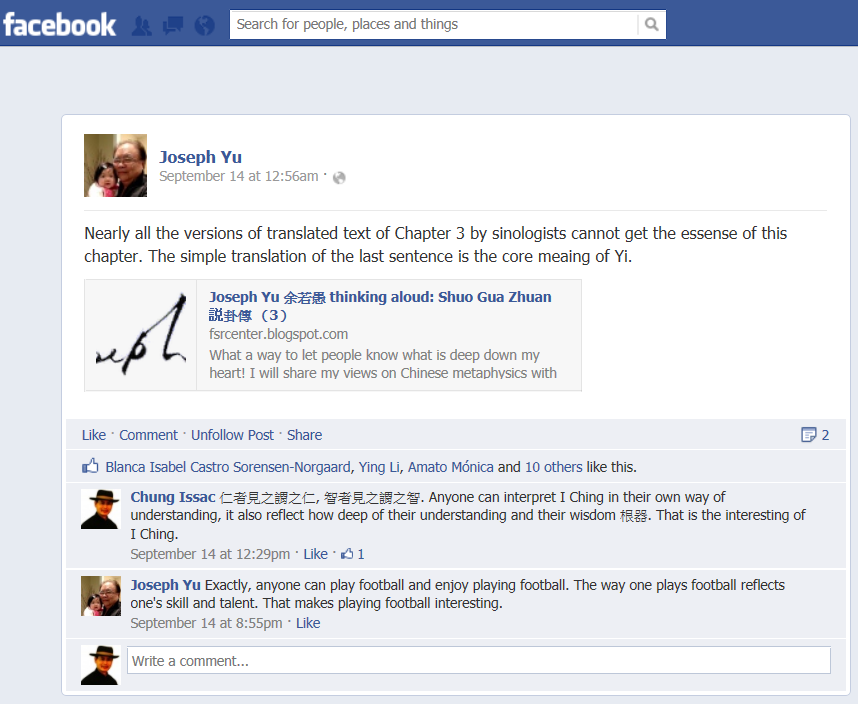Chung’s “I – Ching 易經” 7 – How to study I-Ching
If you agree there’s lost in translation, then the original meaning of I-Ching will be downgraded each time a scholar translate the previous scholar’s interpretation. Thus, studying the earliest version of I-Ching will be more important and tasteful.
The “Chinese” language has suffered from big loss in comparison to the other languages. If the person who did the translation is not an I-Ching expert, his interpretation is just based on the surface meaning of the text, which could twist the meaning totally.
Before I show you the examples, I would like to announce that my analysis is only based on academic perspective; I am not intended to attack anyone personally. Thus, if I misunderstand your point of view, please come to my discussion board to clarify your meaning. Other members are also welcome to express your opinions.
http://www.facebook.com/groups/316686908429009/


The two articles above are written by my friends, Mr. Joseph Yu. I have no doubt that he has a certain level of understanding in I-Ching and that he has a very good writing skill and teaching skill.
Although both articles are in different language, one in English and other in Chinese, the conclusion of both articles is that “Yi (易) is against the predetermine fate.”
Joseph also had the following comment: “Nearly all the versions of translated text of Chapter 3 by sinologists cannot get the essense of this chapter. The simple translation of the last sentence is the core meaing of Yi.”

Let’s take a look at another translation by a sinologist, Mr. James Legge at http://ctext.org/book-of-changes/shuo-gua

Mr James Legge (December 20, 1815 – November 29, 1897) was a sinologist, and his conclusion from his translation is, “Yi we have (both) anticipation (and the natural process)”.
Although I can’t accept Mr. James Legge’s translation fully and my English skill is not as good as both of them, I can see Mr Legge’s translation has not lost the core idea of I-ching.( “天人合一 Harmonic between man and nature”). Mr. Yu’s idea, on the other hand, is just the opposite of the fundamental concept of I-Ching. If Mr Yu can find any evidence in I-Ching to support his argument, “Yi is against the predetermine fate”, I am sure many of us would like to listen. Based on his explanation on Chapter 3, it clearly shows his misunderstanding of I-Ching and he should spend more effort analyzing it before publishing his perspective and misleading his audiences.
I will analysis his misinterpret in the coming article.
http://www.royalacademicinstitute.com ... s/article.php?storyid=268
http://www.royalacademicinstitute.com ... s/article.php?storyid=269
If you like to continue read my articles, please subscribe
If you like my article, please don’t hesitate to share with your friend by sending them a link or put my link in your website.
http://www.royalacademicinstitute.com/modules/news/index.php?storytopic=21
If you like to help me to translate my articles into other language, please don’t hesitate to contact me.
|